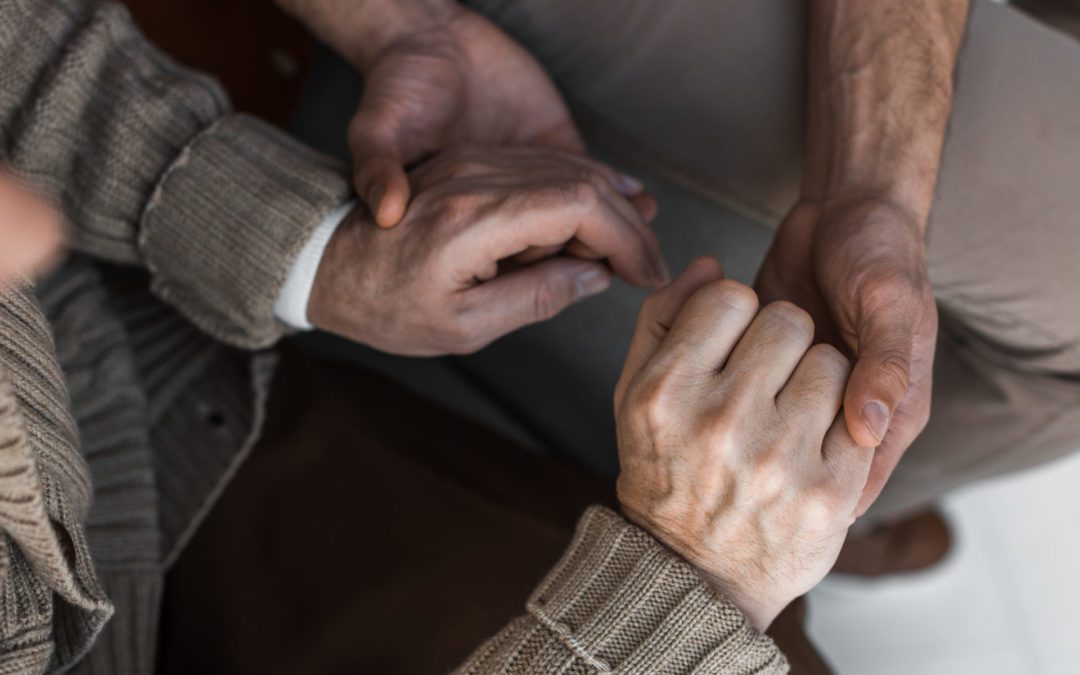The effects of passing time are taking their toll on all of us. Accepting this reality for ourselves can be tough, but watching it happen to our dear parents? Even tougher. It’s a difficult position to be in to know that your parents can no longer take care of themselves, and not be sure of what or when to do something about it.
Taking care of the grown-ups that taught you how to care for yourself can be an emotionally daunting experience. At Grace Pointe, we want you to feel well equipped to make those tough decisions when the time comes. Below you will find some key signs to watch for that will suggest your parents can no longer take care of themselves, accompanied by some options to support you through this tough time.
When to Provide Support for Your Elderly Parents
As you watch your parents age, you’ll begin to see them change. Many of these changes, like wisdom, patience, and kindness, are a delight to experience. Other changes, like frailty, loss of memories, or general apathy, can be difficult to watch. There will come a point when it will be clear that they need help. Here are some signs to help you know when that time has come.
Increased Apathy Around Health and Lifestyle
You may notice your parents grow seemingly apathetic about things they once cared about. Instead of going out for errands or activities, they’ve become a hermit in their home. Instead of keeping up with household chores, they’re living in a cluttered mess. Instead of staying on top of their personal hygiene, you notice they’re no longer showering or brushing their teeth.
These apparent signs of apathy can occur for a variety of reasons. Our parents can become more anxious with age, keeping them home, more afraid to do the things they normally do. For some, it may become too difficult to keep up with daily normalities. In other cases, these behaviors may be a sign of mental unhealth.
Loss of Ability to Remain Safe in the Current Environment
There may come a point when the environment your parents have lived in becomes unsafe for them to stay in. Oftentimes, the greatest danger for an elderly person is falling while completing normal activities. As we grow frailer with age, these falls can be particularly threatening. Keeping an eye out for bruises or damaged furniture can help you spot this problem.
You may notice your parents are losing weight inexplicably. This can be happening due to a variety of mental and physical conditions. This may also be due to neglect of their individual health. Regardless of the reason, weight loss can be worrisome and is worth investigating.
Apparent Difficulty with Memory
There are a handful of instances where you may notice your parents’ memory failing. Perhaps they’re experiencing financial difficulties because of failure to remember to make payments. Maybe you notice them arriving late to events at familiar places because they’ve gotten lost along the way. You may also observe them having difficulty completing once simple tasks.
Like the other signs we’ve discussed, there can be many reasons for these observations. In any case, it will become increasingly clear that it’s time to step in to help. While your parents age inevitably, you can be sure they age safely.
Talking to Your Parents About Your Concerns
Once you’ve concluded that your parents can no longer care for themselves, you’ll need to have a conversation with them. Communicating this to your parents can prove challenging for some. While some of our parents may be fine with this news, having perceived these signs themselves, others may be offended by this news feeling it marks a loss of independence, or even insisting they don’t need help. Here are some things to remember when having these conversations.
Be gentle. You’re delivering big news. It may be hard to receive, so deliver it gently.
Be patient. Your parents may not receive the news well. Be patient with them while they work through it.
Be humble. Your parents are your parents, and they’ve lived a lot of life. Be humble and acknowledge your parents’ input.
Be informed. You’re suggesting some big changes. Be informed and do your research on what all those changes entail.
Understanding the Options for Providing Care for Your Parents
In some cases, for some amount of time, you may be able to help your parents yourself, whether that looks like moving them to your house, moving in with them, or visiting more frequently. For many, though, this can be difficult in the midst of the movement of their own lives. Not being able to care for your parents yourself doesn’t mean you don’t care about them. It also doesn’t mean they can’t be cared for. Here are some great alternative options to consider.
- Assisted Living – Moving your parents to an assisted living facility allows them to maintain as much autonomy as they are capable of, while also providing them the care they need. Learn more about assisted living here.
- Independent Living – Choosing an independent living service allows your parents to go about their lives the way they’re used to without the worries of household maintenance. Learn more about independent living here.
- Long-Term Care – Long-term care provides a more extensive care for your parents in an environment designed for family and loved ones to stay for dinner. Learn more about long-term care here.
At Grace Pointe, Your Parents Can Age In Place
As your parents age, their needs will change. It’s important to provide them with an environment where they can safely and comfortably age in place. At Grace Pointe, we can provide that environment, and with our customized approach to care, you can be sure your parents’ specific needs are our priority. Explore our services, and provide your parents with the care they need.









